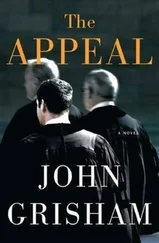John Grisham - The Activist
Здесь есть возможность читать онлайн «John Grisham - The Activist» весь текст электронной книги совершенно бесплатно (целиком полную версию без сокращений). В некоторых случаях можно слушать аудио, скачать через торрент в формате fb2 и присутствует краткое содержание. Год выпуска: 2013, ISBN: 2013, Издательство: Dutton Juvenile, Жанр: Старинная литература, на английском языке. Описание произведения, (предисловие) а так же отзывы посетителей доступны на портале библиотеки ЛибКат.
- Название:The Activist
- Автор:
- Издательство:Dutton Juvenile
- Жанр:
- Год:2013
- ISBN:9780525425779
- Рейтинг книги:5 / 5. Голосов: 1
-
Избранное:Добавить в избранное
- Отзывы:
-
Ваша оценка:
- 100
- 1
- 2
- 3
- 4
- 5
The Activist: краткое содержание, описание и аннотация
Предлагаем к чтению аннотацию, описание, краткое содержание или предисловие (зависит от того, что написал сам автор книги «The Activist»). Если вы не нашли необходимую информацию о книге — напишите в комментариях, мы постараемся отыскать её.
The Activist — читать онлайн бесплатно полную книгу (весь текст) целиком
Ниже представлен текст книги, разбитый по страницам. Система сохранения места последней прочитанной страницы, позволяет с удобством читать онлайн бесплатно книгу «The Activist», без необходимости каждый раз заново искать на чём Вы остановились. Поставьте закладку, и сможете в любой момент перейти на страницу, на которой закончили чтение.
Интервал:
Закладка:
A group of men in dark suits stood up and circled the podium. A spokesman from the highway department introduced himself and began reading a long and boring introduction to the project. Ten minutes in, the crowd seemed to deflate as it became obvious this formal presentation might take forever. The first spokesman handed off to the second, an expert in traffic studies, and he soon buried them in a sea of numbers.
Adults struggle to pay attention to wearisome material. Kids have no chance. Theo was tired of breathing through the mask and absolutely numb with boredom. An adult behind him said, and not too softly, “They’re trying to bore us to death so we’ll go home. It’s an old trick.”
Another responded with, “Yes, that and starting at eight p.m. Should’ve started earlier.”
There was quite a lot of mumbling throughout the auditorium. Kids fidgeted and left for the bathroom. When the third spokesman said, in a dull voice that never seemed to go up or down, “Now, the second traffic study is shorter than the first, and I’d like to go through it carefully,” a wave of groaning went through the crowd. Occasionally, one of the commissioners would ask a question to break things up, but for the most part the spokesmen and experts for the state rambled on as if they might talk for hours. Nine p.m. came and went, with no end in sight. Maps and models were flashed onto large screens near the front of the room, the same stuff that had been in the newspaper and online for weeks. Nothing new.
The crowd was growing restless, but no one left. As bedtime approached for many of the kids, their parents seemed determined to stay. So what if they lost some sleep? This was far more important.
Tempers flared when Mr. Chuck Cerroni, the only commissioner to publicly condemn the bypass, began to argue with the highway department experts. This upset Mr. Lucas Grimes, a big supporter of the project, and the two commissioners engaged in several rounds of sniping at each other. Their anger and drama livened up the evening, but only for a few moments. When they finally settled down, yet another spokesman took the podium and began his part of the program.
It was almost 10:00 p.m. when the formal presentation finally ran out of gas. Mr. Stak leaned into his mike and said, “Thank you, gentlemen, for a very informative summary of the project. Now, we decided yesterday to allow one spokesman for the opposition to present a fifteen-minute rebuttal. I believe Mr. Sebastian Ryan of the Stratten Environmental Council will do that at this time.”
The crowd, having survived two hours of misery, suddenly came to life. As Sebastian walked to the podium, a ripple of fresh energy went through the auditorium. He adjusted the mike and said, “Thank you, Mr. Stak, and thanks to the commission for allowing us to be heard.” He paused, then dramatically, and loudly, said, “To put it frankly, gentlemen, this bypass is a rotten idea.”
The room exploded with applause and cheering as hundreds of opponents finally had the chance to be heard. The crowd yelled and clapped with a burst of energy that startled almost everyone, most especially the five commissioners. Mr. Stak raised a hand and calmly waited for the racket to die down. He said, “Okay, that’s enough of that. Please restrain yourselves. If you can’t be quiet, then we’ll ask you to leave.” He was pleasant, wise no doubt from years of experience.
The crowd slowly settled down, but there was little doubt it was ready to rumble. Bored adults were no longer bored. Sleepy kids were wide awake. They listened intently as Sebastian Ryan began a point-by-point criticism of the bypass.
Every word he said made perfect sense, at least to Theo, who was thoroughly captivated with Sebastian at the podium. He was smart, calm, and with a beard and slightly longer hair was clearly the coolest speaker so far, in Theo’s opinion. Sebastian was a lawyer who stayed away from courtrooms; instead, he fought to protect the environment. Theo had never thought about doing that kind of work, but at the moment he wanted to be like Sebastian. Though Theo felt a little ashamed to think such thoughts, he sort of envied Sebastian as the center of attention.
But not everyone was impressed. Mr. Lucas Grimes and another commissioner, Mr. Buddy Klasko, began firing questions at Sebastian. Everyone knew Mr. Grimes was in favor of the bypass, and as the evening progressed it had become clear that Mr. Klasko was too. Add the vote of Mr. Stak, the loudest supporter, and the bypass had three out of five, or a majority. A victory.
After half an hour of haggling and bickering, Sebastian Ryan began to lose his cool, and with good reason. Mr. Grimes and Mr. Klasko became even more aggressive in challenging every minor point. Mr. Cerroni, an opponent, tried to help Sebastian, and at times it seemed as if all five commissioners were arguing and pointing fingers. The crowd reacted badly with mumblings and groans and even a few boos that followed silly questions and comments.
Sebastian had been at the podium for almost an hour when things changed dramatically. During a brief lull in the arguing, a large and rather rough-looking man of about forty stood in the center of the auditorium and yelled, “Are you guys afraid to vote?” His sharp words cut through the heavy air and echoed around the auditorium. The crowd loved it and reacted with cheers and jeers. From somewhere in the rear a chant began, “We want a vote! We want a vote!” This spread instantly to all corners and within seconds hundreds of people were on their feet yelling as loudly as possible: “We want a vote! We want a vote!”
Theo was screaming it too and could not remember having so much fun.
Sebastian wisely sat down during this demonstration. Chairman Stak wisely let the crowd have its voice. After a minute or so, with the windows rattling, he slowly raised his hand and smiled. “Thank you,” he said. “Please. Yes. Thank you. Now please be seated.” The chanting stopped. Shuffling and grumbling, the people reluctantly sat down, or those who had seats did so. Theo and dozens of others had been standing for almost three hours.
Mr. Stak said, “Please, no more outbursts. Our rules of order require that we vote tonight, so please be patient.” Near silence in the auditorium. Mr. Stak picked up a sheet of paper, frowned at it, then said, “Now, according to this sign-up sheet, there are ninety-one people who wish to speak.”
Many in the crowd exhaled. It was 11:05.
Mr. Stak continued, “Normally, when we have such a large crowd, we limit the speeches to three minutes each. Ninety-one speeches times three is about two hundred and seventy minutes, or four and a half hours. Not sure any of us want to say here that long.”
Mr. Grimes interrupted by saying, “We can also change the rules if we want, right?”
“We have the power, yes.”
“Then I suggest we limit the number of speakers.”
This caused another argument among the commissioners, and for ten minutes they haggled about how to save time. Finally, Mr. Sam McGray, the oldest commissioner and the one who had said the least, suggested a limit of five speakers at five minutes each. That would guarantee the meeting would be over by midnight, and it would allow enough different voices to be heard. He said what everyone knew—that many of the speakers would say the same thing. The other four finally agreed and the rules were changed on the spot. Mr. Stak urged those who wanted to speak to huddle quickly with their friends and colleagues and decide who would say what. This caused some chaos and burned some more clock.
It was almost 11:30 when the first speaker stepped to the podium. He was a well-dressed gentleman from a business group and really wanted the bypass. Nothing he said was new; the congestion on Battle Street was choking traffic; Highway 75 was crucial to the rest of the state; economic growth depended on the bypass; and so on. Hardie’s father spoke next, and, on behalf of the landowners sitting in the path of the new four-lane, delivered a lecture on the abuses of eminent domain. As a minister, he was accustomed to preaching, and he was very effective. A local plumbing contractor spoke in favor of the project because he employed eight crews with eight trucks and was frustrated with the slow traffic around town.
Читать дальшеИнтервал:
Закладка:
Похожие книги на «The Activist»
Представляем Вашему вниманию похожие книги на «The Activist» списком для выбора. Мы отобрали схожую по названию и смыслу литературу в надежде предоставить читателям больше вариантов отыскать новые, интересные, ещё непрочитанные произведения.
Обсуждение, отзывы о книге «The Activist» и просто собственные мнения читателей. Оставьте ваши комментарии, напишите, что Вы думаете о произведении, его смысле или главных героях. Укажите что конкретно понравилось, а что нет, и почему Вы так считаете.












